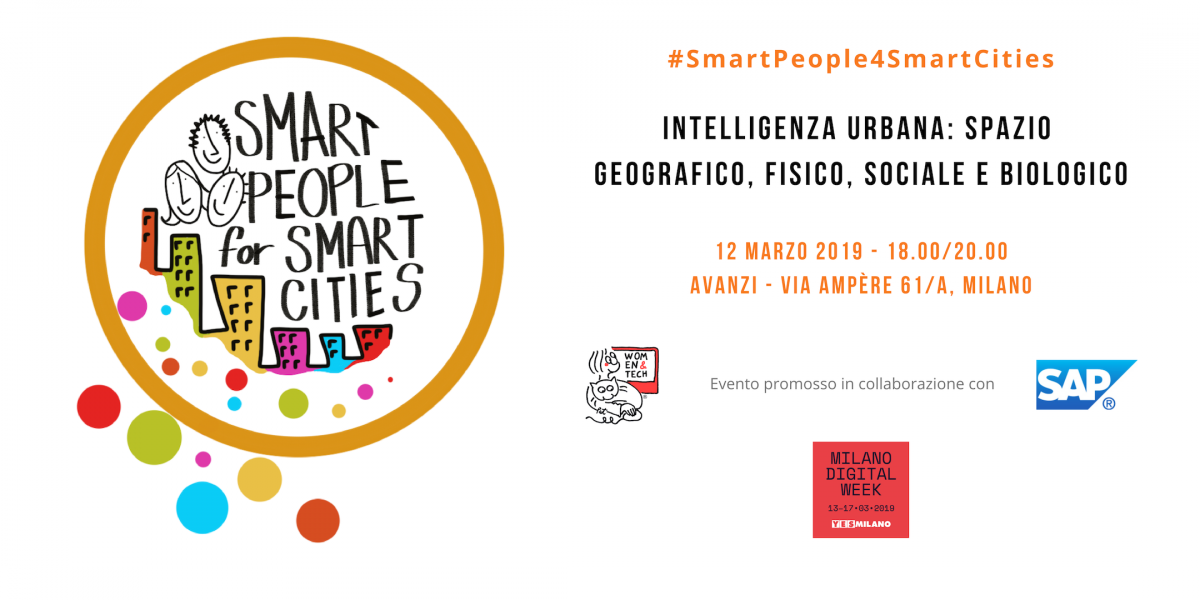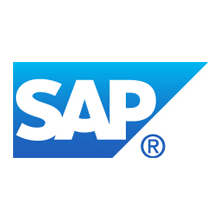
- 18:00 - Opening and welcome greetings
- 18.05 - Talk
- 19.40 - Aperitif and networking
- 20.00 - Event closure
- Carla Masperi, Chief Operating Officer, SAP Italy
- Chiara Tagliaro, Research Fellow and Consultant, Politecnico di Milano
- Alessandro Rosina , Professor of Democracy and Social Statistics, Catholic University of the Sacred Heart, Milan
- Marta Bertolaso, Associate Professor of Philosophy of Science at the University Campus Bio-Medico, Rome

Program
Discover the full event schedule, session times, topics, and keynote speakers.
The digital revolution is touching all aspects of a person's life: work and private life, as well as their role as a "citizen". What does it mean to be a smart city today, capable of offering innovative services for the benefit of citizens, communities, and businesses? During her presentation, Carla Masperi will address these issues by exploring examples of cities that have already embraced digital technology with positive impacts on society: from Boston to Buenos Aires, from Antibes to Nanjing, in order to understand how digital technologies can help a city move more efficiently, use natural resources more effectively, and protect the health and safety of its citizens.
Urban ecosystems are the metropolises, cities, villages, and streets created and traversed by humans.
The dynamics at play and the continuous transformations of these ecosystems highlight the need for generative networks and open platforms aimed at creating resilient places and communities; at recognizing and interpreting very complex phenomena according to a systemic vision; at generating a system of decisions and actions capable of guiding ongoing transformations; at initiating processes of urban regeneration and/or valorizing built heritage; at democratizing access to services; at managing so-called common goods; at generating social impact and inclusive growth.
Real estate is a strategic area for creating value in our country: it is the infrastructure through which to generate innovation, employment, real value, social value, and economies of scale in welfare services. The study of sharing models in the real estate sector and the promotion of innovative real estate products in the field of co-living, co-working, and personal services are exactly in line with this conceptual approach.
Even in this sector, digital applications are radically changing the way urban ecosystems and built spaces are designed, managed, and used. In jargon, these applications are called digital real estate, or PropTech. PropTech is revolutionizing the entire real estate sector, for example, generating new financing methods and access to housing, making the experience of physical space virtual and accessible remotely, changing the concept of ownership and usage, and much more. The Real Estate Center has founded the PropTech Monitor, an industry observatory whose goal is to create culture, spread knowledge, and generate opportunities for digital real estate. The Monitor aims to analyze these dynamics in the Italian context. Despite a slight delay compared to other international experiences, PropTech in our country is also contributing to the creation of more open, shared, transparent, democratic, and intelligent built spaces. It is important to remember that behind every PropTech there is not only digital technology. PropTech is the new means through which creativity, insights, ideas, sensitivity, in a word, the intelligence of people, expand to urban ecosystems. [1]
This is a line break.Research center of the ABC Department at the Polytechnic University of Milan. [1]
Technology has always followed the life of man and has developed according to his needs. But today it no longer seems so. Will it change our way of understanding life as technology advances? What are the challenges and opportunities that new technologies offer us in relation to our body and the environment that surrounds us? In the meeting, we will delve into these themes focusing on two aspects. On the one hand, we will analyze how we have moved from an era where 'technological' was an adjective to another where 'technology' is a noun, to ask ourselves if we are heading towards a world where we will be technology. This is the scenario of the concept of Industry 5.0 in which artificial intelligence and robotics will enter our body. We will then question how technology will take care of life, exploring the fundamental relationships of life, the limits and possibilities of emerging technologies in dealing with it. What remains specific to human life seems to condition the emerging concept of Hospital 4.0 (where the patient will be constantly monitored and assisted even remotely) and guide its care models.